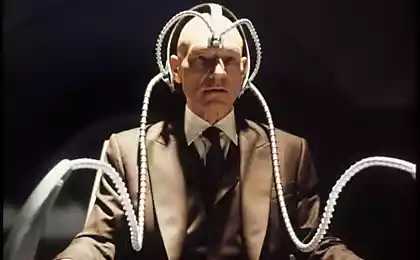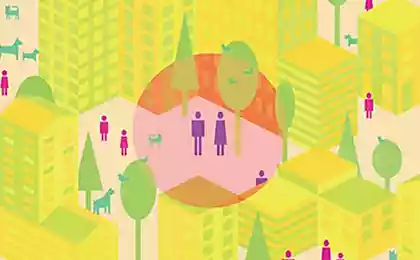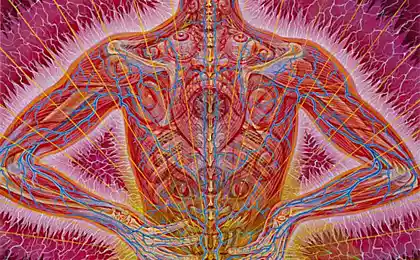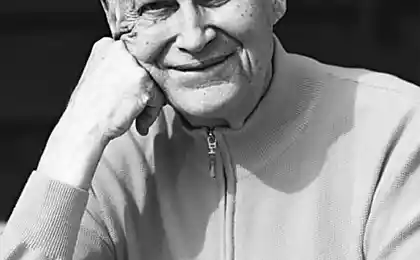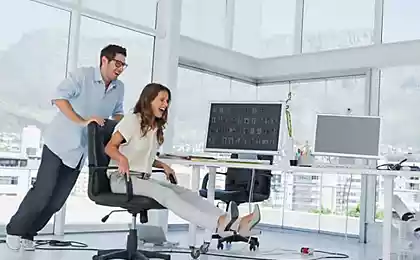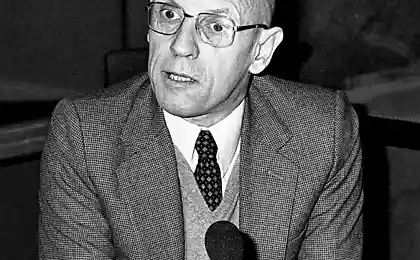524
Order in mind: how to keep the ability to focus in the information age
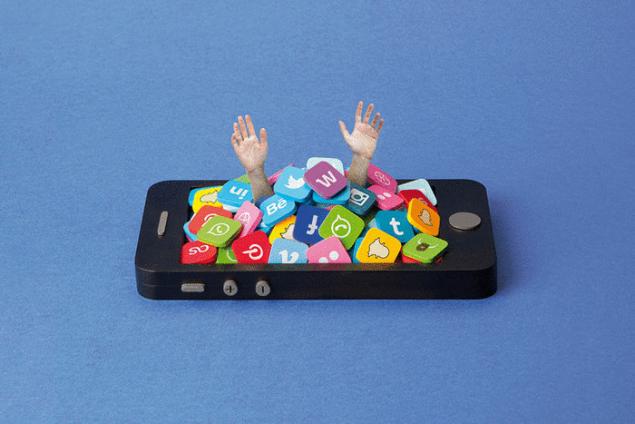
© Alvaro Dominguez
Modern technology is constantly attacking our brain, attacking him unprecedented amounts of information. Someone believes that multitasking is possible, but many scientists believe that this mode of communication with the outside world is not for us. The question is, how to protect yourself from its side effects, not turned in the information of an ascetic. Neuroscientist, musician and author Daniel Levitin from McGill University recently presented his new book "The Organized Mind: Thinking Straight in the Age of Information Overload" in a lecture at Cambridge University. And explained why multitasking negatively affects our productivity and how to deal with it.
Indeed, we live in an era when the world was overloaded with information. Google estimates that mankind has produced about 300 exabytes of information (that's 300 with 18 zeros). Only 4 years ago, the number of existing information was evaluated in 30 exabytes. It turns out that over the past few years we have produced more information than in the entire history of mankind. Every day we have to handle 5 times more data than 25-30 years ago. It's still something to read from cover to cover 175 Newspapers a day! I want to say that information overload is a reality. The discrepancy between the produced information and our ability to handle it.
Besides the fact that we are trying to cope with exabytes of information in the network, we are overloaded with new daily challenges. If 30 years ago the trip was organized by travel agencies, the right product in the store gave the sellers, punched his cashiers, and correspond to business people helped typists, but now we have to do everything yourself. Many professions simply disappeared. We do book the tickets and hotels themselves, check-in, choose products and even by their pushing on the desks of self-service. Moreover, the bills now also have to produce their own special site! For example, in Canada they just stopped sending. So we began to do the work of ten while still trying to keep up with their own lives to care for the children, parents, chat with friends, find time for work, Hobbies and favorite shows. In total, we spend about 5 hours a week on tasks that were previously performed for us by other people.
It seems to us that we are doing several things at once that we are multitasking, but in fact it is a very big misconception. Earl Miller, a neuroscientist at mit and one of the leading experts in the field of attention, says that our brain is not designed for multitasking. When people think that are busy with several things simultaneously, they are actually just very quickly switching from one task to another. And every time it takes some resources.
Switching attention from one task to another, the brain burns glucose, which is also needed to maintain concentration. Because of the constant switching of fuel quickly consumed and we feel tired after a few minutes, because literally exhausted nutrient resources of the brain. This jeopardizes the quality of both mental and physical work.
In addition, frequent switching between tasks causes anxiety, increases levels of the hormone cortisol, responsible for stress. This can lead to aggressive and impulsive behavior.
However, the habit of switching between tasks is difficult to get rid of, because each new task triggers the release of dopamine, the hormone responsible for "reward" of the brain. Thus, a person receives pleasure from switching becomes dependent on it.
Another argument in favor of the fact that multitasking does not work — a recent study by the neurobiologist from Stanford, Russ Poldrack. He found that memorization of information in multitasking leads to the fact that information is stored in the wrong place. If children are taught lessons and at the same time watching TV, the information from the textbooks gets in the striatum, a part of the brain responsible for reflexes, behavior and skills, but not for the storage of facts and ideas. If distractions no information enters the hypothalamus where it is structured and categoryseries by different criteria for easy access to it in the future. Thus, people are not capable of multitasking. It's all self-deception. Our brain is happy to be deceived, but in fact, our work becomes less creative and effective.
"I don't want to decide anything" — a serious signal from the brainTo everything else, multitasking requires constant decision-making. To answer the message now or later? How to answer it? How and where to save this message? Whether to continue working or take a break? All of these are minor decisions require as much energy as important and significant, so they are the same tire the brain. We spend a lot of effort on trivial decisions, but there is a risk that we will not be able to make the right choice when necessary. We seem to understand that it is important for us and what is not, but in the brain when this occurs the same process. The decision of what color to grab a pen, and the decision whether to enter into a contract with a particular company, consumes the same resources.
Of course, no matter how we tried to avoid doing several things at once, just to get away from this will not work. However, there are effective ways to restore order in his own head, to become more productive and get more enjoyment out of life.
Divide the work into cycles, What is common among air traffic controllers and interpreters? These jobs are very stressful because they require constant switching of attention between tasks. Therefore, people in such professions work in "cycles" and often make short breaks. At work we have more and more flooded with emails, orders, calls. Try to do 15-minute breaks every hour or two. You can walk, get some fresh air. Then, after returning, you will be able to work faster and more efficiently. Studies show that reduce processing efficiency: for a job requiring 20 minutes, tired employees spend an hour.
Change the mode of the concentration ofBreaks is closely linked with two modes of attention can operate the brain. The first is a mode of concentration, so-called central executive mode, the second mode is "walk" (mind-wandering mode). Last aktiviziruyutsya when reading literature, admiring art, walks, or day dream. 15 minutes in this mode allow you to "restart" the brain and feel fresh and rested. Thoughts just rambling arise in the mind, you don't control them. Have to force yourself to periodically go into the "walk", disconnect from the Internet and e-mail.
In addition, you probably have tasks that require a large amount of time to complete, and tasks, which is enough to allocate a few minutes. Not worth an entire day jumping from one task type to another. It is better to select to check mail for a certain time (for example, twice a day) and read from all received messages, and do not go in the mail after each notification.
Make important decisions in the morningwas such an experiment: people were invited to the laboratory to participate in the survey. But first they bombarded with questions: what color pen do you want? Black or blue? How to position a sheet of paper? Vertically or horizontally? You want coffee? Two sugars or three? With or without milk? And after that distributed the questionnaire, which raised the really important philosophical problems. Most people could not handle it, they needed a break. They felt tired after the preceding series of little decisions. The conclusion from this experiment, important decisions need to be made early in the day.
Create "extenders" brain"Extenders" of the brain is all that carries information from our heads into the real world: calendars, notepads, to-do lists, a box for keys in the hallway. For example, if you listen to the weather and the announcer announces that it will rain tomorrow, instead of trying to remember to take an umbrella, place it directly outside the front door. Now the environment itself reminds you of the umbrella. The point is that all these pieces of information are fighting for a place and resources in our head, knocking your thoughts. As a result, you increasingly difficult to pay attention to what you're doing at the moment.Live "in the moment"
I think it's wrong to physically be in one place, and thoughts in the other. But this often happens. At work, we think about what we still have to walk the dog, pick up the child from the garden and call my aunt. And when you come home, remember all is not done for the day working the business. I urge all to turn into robots, but I think it's important to be able to perform at work, their tasks and have more time for rest, adventure, communication, art. If thoughts to be elsewhere, you get far less enjoyment in life. When you communicate with the person, imagine that now is the only person on earth, give them your full attention. Then the work and the rest will start to bring more pleasure.
Don't overdoImportant thing in the pursuit of efficiency — not to spend too much time organizing your life. If you think that you just cope, you should not waste time. published
P. S. And remember, just changing your mind — together we change the world! ©
Source: theoryandpractice.ru


